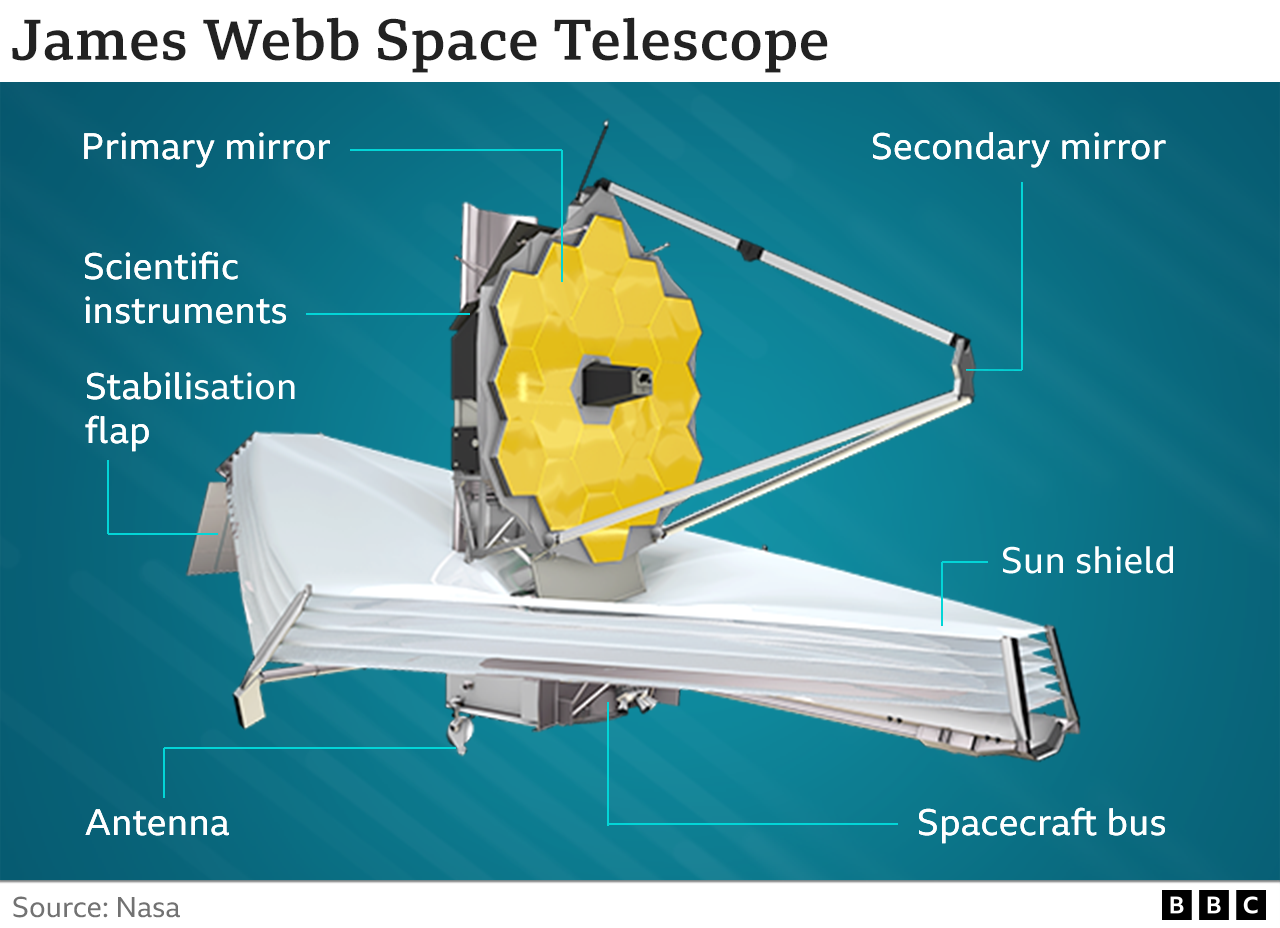James Webb Space Telescope uncovers origins of distant planet
- Published

WASP-39b is an exoplanet that lies 700 light years away from Earth
A team of astronomers have used the James Webb Space Telescope to establish how a distant planet was formed.
The University of Leicester team formed part of a Nasa-coordinated study based on observations from the new telescope.
It began full science operation earlier this year after reaching its observation position a million miles away from Earth.
The team said it had given them new information about a planet named WASP-39b.
'Amazing discoveries'
WASP-39b is an exoplanet - a planet that lies outside our solar system - 700 light years away from Earth.
It is similar to Saturn in mass and Jupiter in size.
The planet, orbiting a Sun-like star, is made of gas, is extremely hot, and has fascinated scientists since its discovery a decade ago.
The study has revealed more information about its atmospheric make-up, and helped determine its origins.

Scientists analysed different wavelengths of light to determine the planet's ratio of carbon and oxygen.
They said this allowed them to pinpoint the location where it was formed.
Dr Sarah Casewell, of the School of Physics and Astronomy at the university, said: "WASP-39b was originally discovered as part of Superwasp, a project that involved the University of Leicester and it is fantastic that we have built on that legacy."
The team said WASP-39b is located too close to its star to be habitable for life.
However, they believe they could apply similar research techniques to exoplanets where life could, or could have once, existed.
Beth Henderson, a PhD student at the university, said being on the team had been a "great experience" which had allowed her "to be involved in supporting amazing discoveries".
Lead author Eva-Maria Ahrer, a PhD student from the University of Warwick, said the study was "the benchmark for further planetary research".

Follow BBC East Midlands on Facebook, external, Twitter, external, or Instagram, external. Send your story ideas to eastmidsnews@bbc.co.uk, external.
- Published12 October 2022